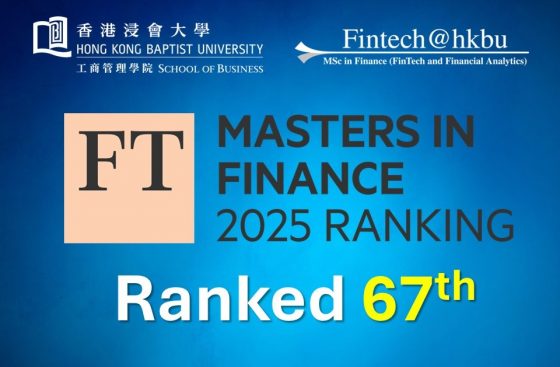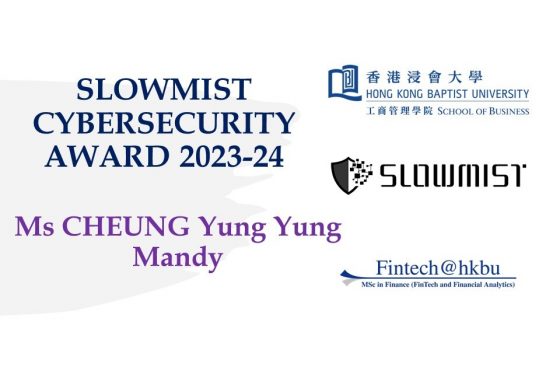Master of Science in Finance (FinTech and Financial Analytics)
With the rise of disruptive technologies and the new generation of Big Data and FinTech, concepts of money, payments, identity, and security need to be looked at through a new lens -- how can finance professionals respond early and effectively to ride the wave, and take advantage of the new opportunities before it’s too late?
Through lectures, workshops, round-table discussions, case studies and expert sharing from industry practitioners, this inter-disciplinary programme taught by both Finance and Information Systems and Business Intelligence faculty, will widen and deepen your understanding of the rapidly changing landscape and the impact of new technologies on traditional finance models. You will be empowered with knowledge in
- Finance
- FinTech
- Financial Analytics
- Machine Learning
- Financial Computing
- Textual Analysis
- Cybersecurity & Privacy
- Blockchain
- Virtual Assets
- Algorithmic Trading
- Financial Fraud
- Regulatory Compliance
Get well-prepared for the fast-growing demand of today’s data-driven economy, and develop new insights and perspectives towards emerging technologies and harness them to take the Financial Industry to the next level.











































